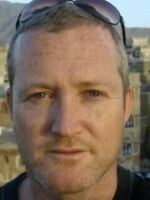Israeli Prime Minister Benjamin Netanyahu said Thursday that Israel is arming clans in the Gaza Strip to undermine Hamas, the Palestinian militant group that Israel has been fighting for almost 20 months.
Netanyahu issued a video statement acknowledging that Israel had "activated" clans that oppose Hamas, saying the move would help save the lives of Israeli soldiers.
The prime minister made the statement after Avigdor Lieberman, a right-wing lawmaker and former deputy prime minister who is opposed to Netanyahu, leaked the news that Israel was arming Palestinian factions in Gaza and warned that the weapons could eventually be turned on Israel's own troops, who are engaged in a large-scale offensive to take control of the coastal enclave and destroy Hamas.
Lieberman claimed in an interview with an Israeli broadcaster that the "Israeli government is giving weapons to a group of criminals and felons identified with Islamic State, at the direction of the prime minister." NPR has been unable to substantiate the claim.
Israel media identified one of the recipients of Israeli support as a gang led by Yasser Abu Shabab, who has been accused by the U.N. of looting its aid convoys last year in areas of Gaza controlled by Israel's military,
But Abu Shabab has recently tried to rebrand himself as a militia leader opposed to Hamas and securing the delivery of food to Gazans, and has posted pictures of himself and his men armed and in uniform.
Hamas is calling on Palestinians to oppose the Israeli-supported militia, accusing Israel of creating chaos in Gaza. In a statement Thursday, the Abu Shabab group denied it was armed by Israel.
Copyright 2025 NPR







